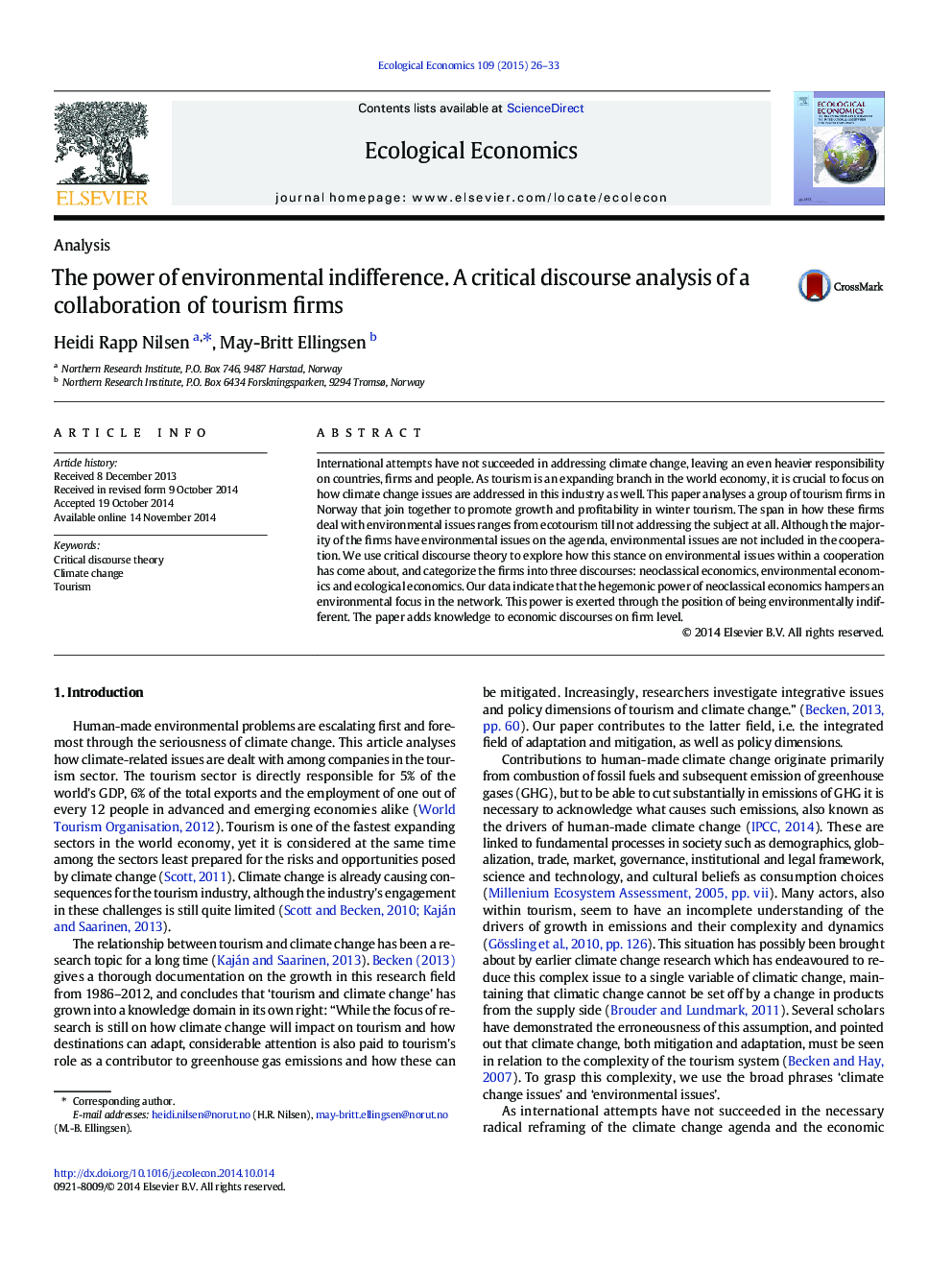| Article ID | Journal | Published Year | Pages | File Type |
|---|---|---|---|---|
| 5049602 | Ecological Economics | 2015 | 8 Pages |
â¢Majority of environmental firms do not ensure environmental focus in a cooperation.â¢The environmental characteristic of neoclassical firms is not reactive, but indifferent.â¢Being indifferent is executed through a hegemonic power.â¢The hegemonic power must be challenged harder through policy.â¢A financial policy tool must make it mandatory for firms to address sustainability.
International attempts have not succeeded in addressing climate change, leaving an even heavier responsibility on countries, firms and people. As tourism is an expanding branch in the world economy, it is crucial to focus on how climate change issues are addressed in this industry as well. This paper analyses a group of tourism firms in Norway that join together to promote growth and profitability in winter tourism. The span in how these firms deal with environmental issues ranges from ecotourism till not addressing the subject at all. Although the majority of the firms have environmental issues on the agenda, environmental issues are not included in the cooperation. We use critical discourse theory to explore how this stance on environmental issues within a cooperation has come about, and categorize the firms into three discourses: neoclassical economics, environmental economics and ecological economics. Our data indicate that the hegemonic power of neoclassical economics hampers an environmental focus in the network. This power is exerted through the position of being environmentally indifferent. The paper adds knowledge to economic discourses on firm level.
